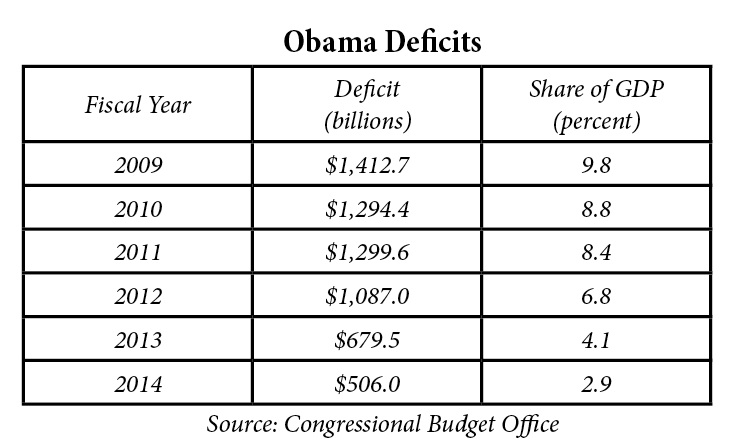Bruce Barlett in The American Conservative:
A Republican stimulus would undoubtedly have had more tax cuts and less spending, even though every serious study has shown that tax cuts are the least effective method of economic stimulus in a recession. Even so, tax cuts made up 35 percent of the budgetary cost of the stimulus bill—$291 billion—despite an estimatefrom Obama’s Council of Economic Advisers that tax cuts barely raised the gross domestic product $1 for every $1 of tax cut. By contrast, $1 of government purchases raised GDP $1.55 for every $1 spent. Obama also extended the Bush tax cuts for two years in 2010.
It’s worth remembering as well that Bush did not exactly bequeath Obama a good fiscal hand. Fiscal year 2009 began on October 1, 2008, and one third of it was baked in the cake the day Obama took the oath of office. On January 7, 2009, the Congressional Budget Office projected significant deficits without considering any Obama initiatives. It estimated a deficit of $1.186 trillion for 2009 with no change in policy. The Office of Management and Budget estimated in November of that year that Bush-era policies, such as Medicare Part D, were responsible for more than half of projected deficits over the next decade.
Republicans give no credit to Obama for the significant deficit reduction that has occurred on his watch—just as they ignore the fact that Bush inherited an projected budget surplus of $5.6 trillion over the following decade, which he turned into an actual deficit of $6.1 trillion, according to a CBO study—but the improvement is real.
Republicans would have us believe that their tight-fisted approach to spending is what brought down the deficit. But in fact, Obama has been very conservative, fiscally, since day one, to the consternation of his own party. According to reporting by the Washington Post and New York Times, Obama actually endorsed much deeper cuts in spending and the deficit than did the Republicans during the 2011 budget negotiations, but Republicans walked away.
Obama’s economic conservatism extends to monetary policy as well. His Federal Reserve appointments have all been moderate to conservative, well within the economic mainstream.
More here.

